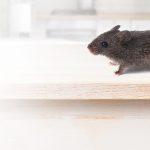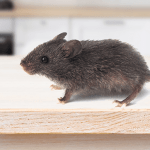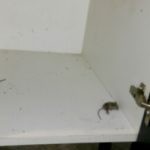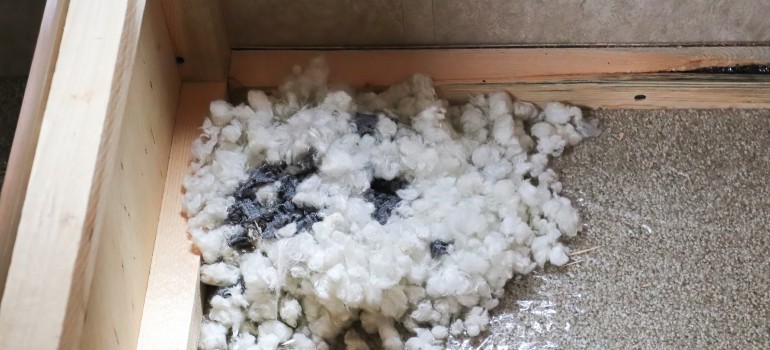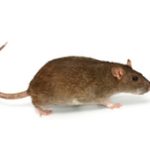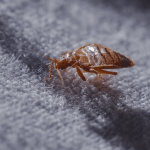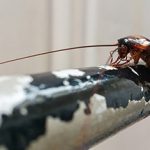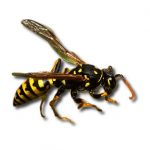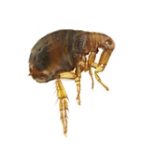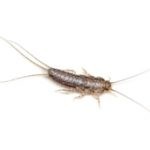Do Mice Bite?
In short, yes they do!
Every animal on this planet that has teeth will most likely attack you if it’s disturbed, feels threatened, or gets over-excited. Mice are no exception.
It’s completely normal to feel anxious in the circumstances of a rodent infestation. Generally, a mouse bite is not that painful. The important thing to uncover in case the critter decides to nibble on you is what sort of rodent are you dealing with. Different types of mice carry different types of illnesses.
For example, the deer mouse is a host to the Hantavirus, while the house one can carry the Leptospirosis and Salmonellosis disease. On the other hand, field mice don’t pose such a threat, especially if you are located in an industrial type of city. You are just not on the rodent’s radar. If you happen to meet a field mouse and it decides to sinks it’s little teeth into your hand, it’s only because the animal is terrified and is trying to defend itself. The other option for the creature’s reaction is if it’s sick.
So, what happens if you get bitten by a mouse? You won’t develop superpowers, that’s for sure. In this article, we will cover the health risks of a mouse bite and what to do if you have the “pleasure” to experience one yourself.
Will a mouse bite you if you’re asleep?
Many people come under the impression that a mouse’s sole purpose is to devour your flesh while you sleep defenceless in your bed. And we can’t blame them for that. Hollywood has an interesting way of showcasing the animals as “bloodthirsty predators”. The truth is that if there is a chance to experience a mouse bite, while you are snoozing, it’s a minimal one.
The critters are scared of humans and the only genuine reason to find one in your bed is if there’s any food source for them, like crumbs, for example. So if you decide to treat yourself to a night in bed, watching movies and eating popcorn, make sure to clean any existing crumbs, or you’ll find yourself on a romantic date with a furry companion. That’ll definitely bring a new meaning to the vine Netflix and chill.
Are Mouse Bites Dangerous and Why?
One of the first thoughts that come to mind when you hear “infestation” is the word “Mice”. No surprise there, given the high rates of rodents invasion in the UK. A case study we made in 2016 shows that people (51.38% to be exact) encounter rodents more often than any other type of vermin. The pest can carry a number of health-treating diseases like leptospirosis, tularemia, typhus and even bubonic plague. On top of that, they host fleas. If you don’t take the needed actions to eliminate the rodents, you’ll find yourself dealing with not one, but two sorts of infestations because of their presence.
What Type of Diseases Do Mice Carry
Don’t get fooled by the critters’ appearance. No matter how defenceless and cute they look, mice host a list of health hazardous illnesses. Here are the most common health concerns:
- Hantavirus
- Hemorrhagic Fever with Renal Syndrome
- Leptospirosis
- Lymphocytic Chorio-meningitis
- Salmonellosis
How do mice spread diseases?
The illnesses we listed above have one thing in common and that is how they are transmitted – you can get infected by any one of them through a mouse bite. That may be the most common way to get contaminated, but it’s not the only one.
You can get Hantavirus by breathing in dust that is polluted with mice urine and droppings or by direct contact with the excrements. The same goes for Hemorrhagic Fever with Renal Syndrome and Lymphocytic Chorio-meningitis. If you consume food that was contaminated by the pest you can catch Leptospirosis and Salmonellosis.
What To Do If a Mouse Bites You?
Here are the steps you need to take if you get bitten by a mouse, so you don’t end up with a health-threatening illness:
- Clean the wound as fast as you can by placing it under running warm water. We advise you to take these actions even if there isn’t a visible tear;
- Take out any object left from the injury, like teeth, mice hair or dirt;
- Squeeze the wound gently to push out some blood;
- In case of heavy bleeding, cover the tear with a sterile pad and apply pressure;
- Dry out the wound carefully, rub in some disinfecting solution and put on a plaster;
- Take Paracetamol or Ibuprofen if you experience any sort of pain;
- Visit your doctor if the wound is more serious.
- Get rid of the mice immediately!
When You Should Seek Medical Help
If you get bitten by a mouse, no matter if it’s only a little nib or a major tear, the risk of developing a serious infection stands, especially if the victim is an elderly person, child or baby. If you spot any signs of an infection forming, visit your physician straight away. We don’t advise on any DIY mouse bite treatments, medications, and concoctions. Many people frown upon the idea of receiving a shot but in cases like these, a booster for tetanus can practically save your life.
The First Signs of a Rising Infection
Immediately seek medical help if you spot any of the following symptoms of infection:
- The pain from the injury is getting worse;
- You develop a high fever;
- Any expanding redness around the wound area;
- Red lines starting to form throughout the tear;
- The lymph nodes on your neck, groin, armpit or around the injury bloat up;
- If the wound starts to radiate heat;
- The affected spots get tender to the touch.
The way to prevent a mouse from biting you is to understand it’s psychology. The small rodent is shy in nature and goes into panic mode really easy. It can gather some extra courage only if it’s hungry or it feels threatened by you. We hope this article has helped you understand that mice are not some evil bloodthirsty monsters that enjoy inflicting pain on its slumbering “pray”. Like every living thing, they have an instinct for self-preservation. So if you spot a mouse, make sure to keep calm and not provoke it in any way, so you don’t end up on the run to the ER for a tetanus shot.
If you’ve tried to rid of the rodent and nothing helped at all, it’s time to book a professional mice extermination service. This is the most effective way to say Goodbye to the biting creatures.
Want to get rid of mice?
We only provide valuable information regarding mouse bites and the possible diseases they can spread. But we, as a commercial service provider, cannot give you medical advice.



